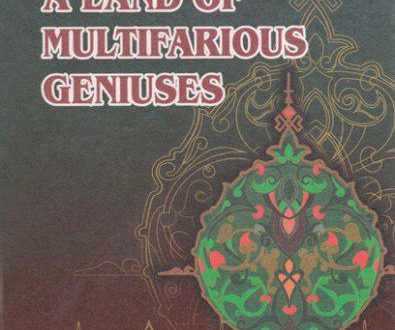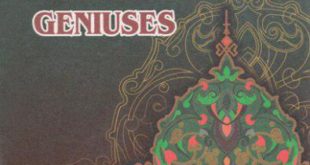When we consider the meaningful statement of our President Islam Karimov “If several generations of our ancestors had not kept in their hearts the religious faith and had not been developing the philosophy of the Holy Islam, we would be deprived of the most valuable and unique spiritual and psychological heritage”, it is natural we imagine the inimitable image of hundreds, perhaps, thousands of our great ancestors who were born and educated in our motherland and left innumerable scientific and spiritual heritage. You may look into any field of knowledge and you will see the names of the most famous and acknowledged scholars born and educated in our land. We should be thankful to Allah that the independence gained by our beloved country provided us with an opportunity to study and investigate the history of the rich scientific and spiritual legacy left by our ancestors. Great amounts of investigations have been and are being carried out in this field, and it should be kept in mind that much more is to be done in this direction.
It is well known that a number of our ancestors paid much attention to the dissemination and right description of the essence of the Islamic teachings, especially of the Hanafian order. They took an active part in the ideological fight against the supporters of different separations in the form of small parties and groups who tried to use the teachings of Islam in the wrong and mistaken fights. One of the well-known figures in this field who led such an unmerciful fight for the purity of Islam was a lawyer Fakhr al-Islam al-Pazdavi of Kasbi. His full name is Abu-l-Hasan Ali ibn Muhammad ibn al-Husain ibn Abdulkarim ibn Musa ibn Iysa ibn Mujahid al-Pazdavi. Information about him is provided in the following works left by his Arabic contemporaries such as:
- “Siyar al-a’lam an-nubala” by Shamsuddin az-Zahabi;
- “Al-Ansab” by Abu Sa’d as-Sam’ani;
- “Al-Lubab” by Ibn al-Asir;
- “Al-Muqaddima” by Ibn Khaldun;
- “Al-Javah ir al-muziyya fi tabaqat al-Hanafiya” by Al-Qurashi;
- “Al-Favaid al-bahiya” by Al-Laknavi;
- “Kashf az-zunun” by Hajji Khalifa, etc.
Fakhr al-lslam al-Pazdavi was born in the village of Pazda (Old Fazli) of modern Kasbi district of Kashkadarya region.
A well-known Arabic traveller Yaqut al-Hamavi (1178-1229), who had once visited Nasaf (Karshi) and Pazda, left his impressions of this village and its inhabitant al-Pazdavi the following lines in his book “Mu’jam al-buldan” (An Encyclopaedia of Countries): “Pazda is a strong fort of six farsakhs far from Nasaf where one of the great scientists Abu-l-Hasan Ali ibn Muhammad al-Pazdavi was born and educated”. He received the primary education in law from his father and then continued his education in this field in Nasaf, one of the civilized centres of science and education in Maveraunnahr of that time. There are certain reasons for his becoming one of the leading lawyers and scholars in this field as he had grown up in the family of suitable spiritual and scientific environment. His grandfather Abdulkarim al-Pazdavi and his younger brother Ahmad ibn Muhammad Abu-l-Yusr al-Pazdavi were estimated lawyers of their time and had the honourable title of “Sadr al-lslam” (The leader of Islam). Having been brought up in this favourable scientific and educational environment, al-Pazdavi became one of the estimated lawyers of his time and reached the honourable status of imam in the field of the Islamic law.
 Imom Buxoriy xalqaro ilmiy-tadqiqot markazi bukhari.uz
Imom Buxoriy xalqaro ilmiy-tadqiqot markazi bukhari.uz











